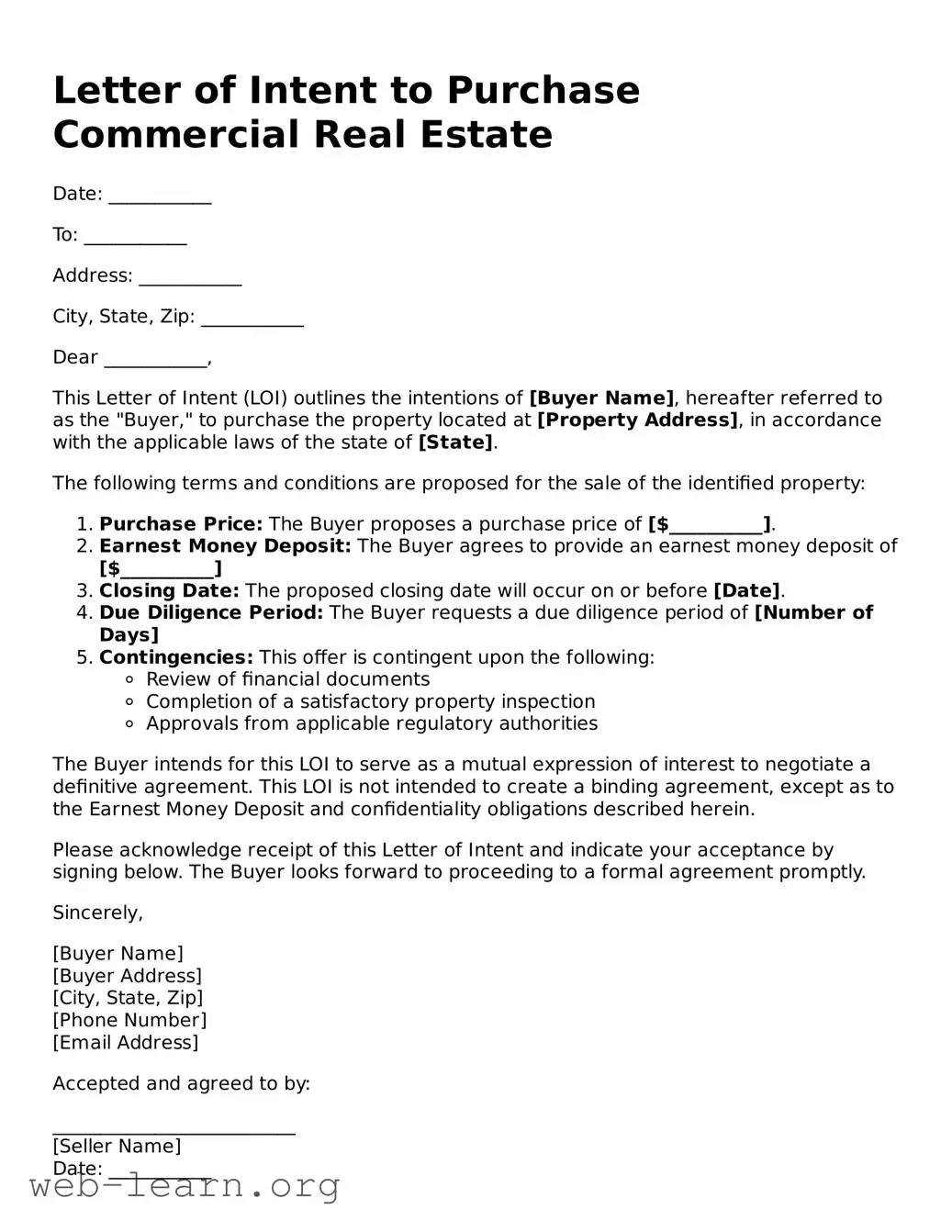Filling out a Letter of Intent (LOI) to purchase commercial real estate is an important step in the buying process. However, many people make mistakes that can lead to confusion or even problematic negotiations down the line. Here are ten common missteps to avoid.
First, many individuals neglect to clearly define the terms of the offer. An LOI should explicitly state the proposed purchase price and terms of financing. Vague language can lead to misunderstandings or differing expectations between the buyer and seller.
Second, failing to indicate timelines is a frequent error. Buyers must outline important dates, including the deadlines for due diligence, closing, and any contingencies. Without these dates, sellers may perceive the offer as weak or insincere.
Another common mistake is not including contingencies. For instance, it’s vital to specify conditions that must be met before the purchase can proceed, such as inspections or financing approval. Without these, buyers could find themselves locked into a deal that’s not in their favor.
A fourth mistake is overlooking specific property details. Some buyers fail to provide enough information about the property, such as its address, current zoning, or intended use. An accurate description helps ensure that both parties are on the same page regarding what is being discussed.
Next, misunderstanding exclusivity agreements can lead to problems. An LOI should clarify whether the buyer is granted exclusive rights to negotiate. If this is omitted, the buyer might find their intended deal jeopardized by other potential buyers entering the mix.
Many make the mistake of not considering additional terms and obligations. This can include leaseback terms, maintenance responsibilities, or other conditions that may arise during negotiations. It’s important to clarify these elements to avoid surprises later on.
The inclusion of legal language can be a double-edged sword. While some legal terms may be necessary, the LOI should remain clear and easy to understand. Overly complex language can confuse all parties involved and undermine the purpose of the document.
A common oversight is forgetting to review the document thoroughly before submission. Typos, missing information, or unclear details can tarnish a buyer's professionalism and might hurt their chances of a favorable reaction from the seller. A careful review ensures clarity and eliminates errors that could jeopardize the offer.
Lastly, some buyers fail to define their intentions clearly. It’s not enough to express interest; potential buyers should communicate their vision for the property. This allows sellers to better understand the buyer's motives and plans, fostering a more constructive dialogue.
By avoiding these ten mistakes, buyers can enhance their chances of a successful transaction. A well-prepared LOI sets the stage for effective negotiations, ensuring all parties are aligned and informed from the outset.
